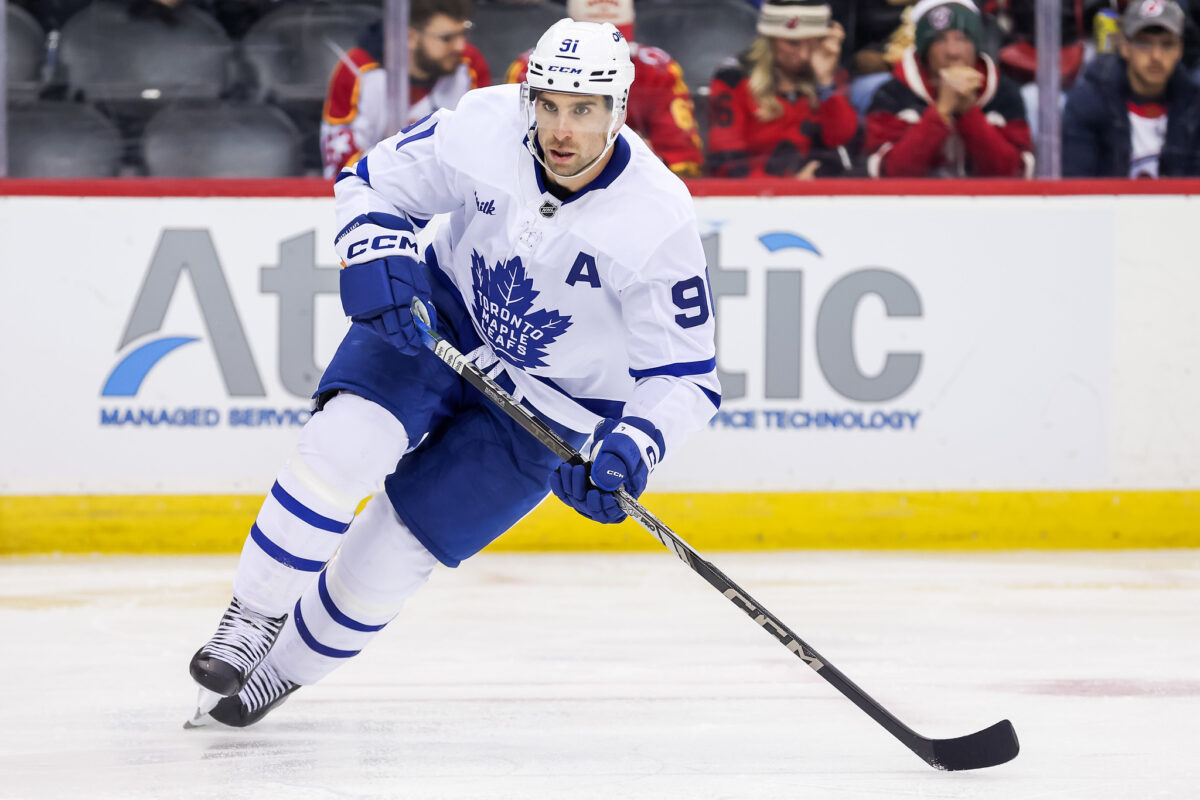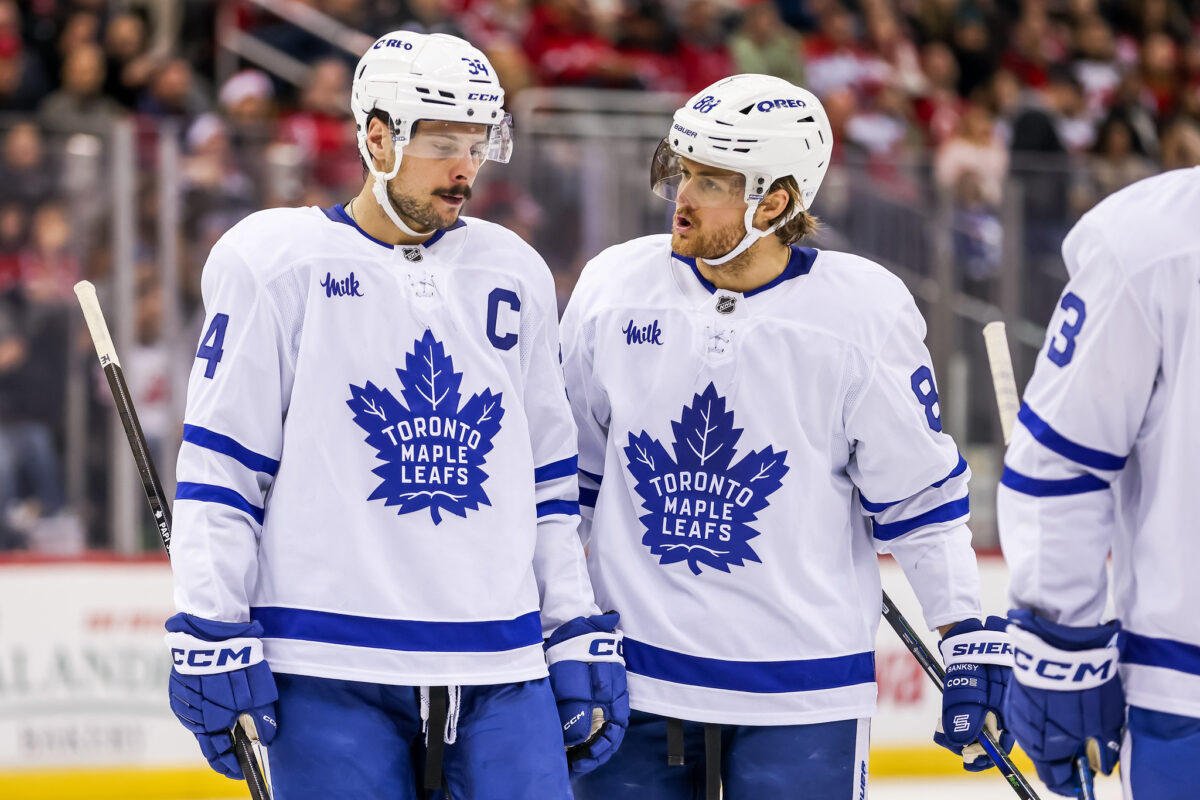For years, covering the Toronto Maple Leafs has meant following not just the team’s highs and lows but also the drama. And with the drama came the scapegoats—players unfairly singled out and booed relentlessly by fans. From Jake Gardiner’s high-profile mistakes to William Nylander’s perceived lack of effort on an icing call two postseasons ago to Justin Holl‘s magnetism for mockery, the fanbase always seemed to find someone to blame.
This year, however, things are different. The Maple Leafs lack a scapegoat for the first time in recent memory. So, what’s changed? Is it Craig Berube’s coaching style, the team’s defensive improvements, or something else? These are guesses, but might they help explain the recent phenomenon?
Reason #1: Craig Berube’s Coaching Style Has Changed the Team Dynamic
Under head coach Berube, the Maple Leafs have adopted a more balanced and disciplined approach to the game. Berube’s emphasis on accountability and teamwork seems to have fostered a more cohesive unit. Players stick up for each other on and off the ice, and there’s a noticeable lack of ego-driven behaviour.
Related: NHL Rumors: Canucks, Sabres, Maple Leafs
This shift could explain why fans are less inclined to single out individual players—they see a team effort, not isolated blame. There’s something that feels special about being part of a team that translates from the ice surface to other aspects of life. The Maple Leafs’ current roster stands out for its lack of prima donnas, fostering a team-first mentality that resonates with fans. By focusing on accountability, humility, and hard work, the players have cultivated an approachable and likable identity. Does that make it easier for fans to rally behind the team as a cohesive unit rather than a collection of individual stars?
Reason #2: The Core Four Are Finally Delivering
The so-called “Core Four”—Auston Matthews, Mitch Marner, William Nylander, and John Tavares—have often been criticized for consuming a significant portion of the team’s salary cap (over 48 percent). Yet, this season, three of the four are performing at or above expectations. Matthews, sadly, is injured. However, in his place, Marner has embraced more of the team’s offence. He’s contributing in all situations. Nylander has emerged as a consistent offensive force, leading the team in goals (from ‘The Maple Leafs have invested heavily in the Core Four with no Stanley Cup payoff. Here’s how recent winners spent their money,’ Toronto Star, 22/04/24).

Even Tavares, often labeled as the weakest link of the group due to his hefty contract, has found a groove in Berube’s system, producing timely goals and providing steady leadership sans the captaincy. Nylander leads the team in scoring, and Matthews and Marner are playing hard-nosed, consistent hockey. With the stars delivering, there’s less fodder for fan frustration. Their collective performance is silencing critics and proving that a top-heavy roster can thrive when the stars deliver consistently.
Reason #3: A Stronger Defence Has Reduced Mistakes
In previous seasons, defensive lapses often led to scapegoating. Players like Gardiner, Rielly, and Holl bore the brunt of fan anger when things went wrong in their zone. This season, however, the defence has been bolstered by a more vigorous playstyle overall. Games are closer, and defensive breakdowns are less common. The improved structure makes it harder for fans to isolate a single player as the problem.
Related: Can the Maple Leafs Contend Without Matthews?
The Maple Leafs’ defence is no longer the lightning rod for fan frustration, and much of that can be attributed to the blue-collar style of players like Chris Tanev, Simon Benoit, Conor Timmons, and Jake McCabe. While Rielly remains an offensively minded presence, the remaining blue line is defensively focused, prioritizing simplicity and reliability over flash. Even Oliver Ekman-Larsson, once known for his offence, has shifted his focus to playing steady, mistake-free hockey.
Yes, this group still makes errors, which are rarely glaring or costly. Their straightforward, hard-nosed style resonates with fans who appreciate effort and accountability over risky plays. This collective approach has helped the defence avoid the harsh scrutiny that plagued players in years past.
Reason #4: Winning Covers a Multitude of Sins
Perhaps the most straightforward explanation is that the team is winning. While the Maple Leafs have had strong regular seasons, there’s something different about this year’s vibe. Fans see a team that competes hard every night, keeps games tight, and doesn’t get blown out. Winning has a way of quieting criticism, and this season’s success has left little room for finger-pointing.
There’s also a noticeable shift in how the Maple Leafs win games this season. It’s not about flashy, high-scoring affairs; instead, it’s a simple, straightforward style of hockey. They’re finding ways to hold onto leads, protect advantages, and avoid chaotic, end-to-end flailing. This systematic approach resonates with fans, who can see and believe in a structure that feels sustainable.

Even in losses, like the recent game against the New York Islanders on Saturday night, the reasons are understandable—too many games in too few nights, missing Matthews, and fatigue catching up to the team. It’s not about silly mistakes, lack of effort, or reckless play. Fans recognize that sometimes, professional hockey comes down to momentum, luck, and the ebb and flow of competing against elite athletes. Even the poorest NHL team is filled with highly-skilled players. This new, composed style has added a sense of belief and patience among the fanbase.
So, Is the Scapegoat Era for the Maple Leafs Over?
This season, the lack of a scapegoat feels like a welcome change for the team and its fans. Something has shifted, whether it’s the influence of Berube’s coaching, the improved defensive play, or the strong performances of the Core Four. Could this be a turning point for the franchise’s relationship with its fanbase? Perhaps.
Related: Why Didn’t the Maple Leafs Make Major Changes Over the Offseason?
If the team can maintain this momentum, the drama-free environment could become the new normal. And for once, Maple Leafs fans might be able to focus on cheering for their team instead of tearing down one of their own. If the Maple Leafs can continue to thrive without the burden of blame, perhaps this newfound unity will extend beyond the ice, strengthening the bond between the team and its fans.
After all, isn’t that what the spirit of Christmas is all about?
